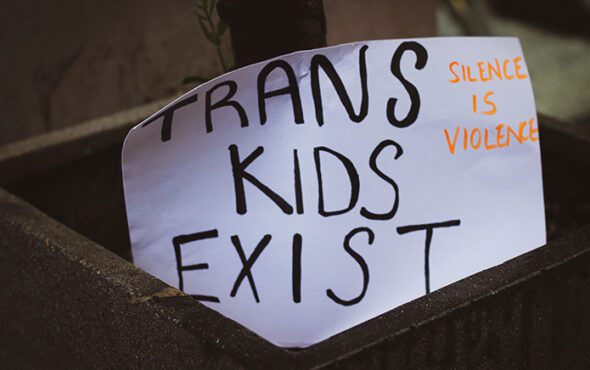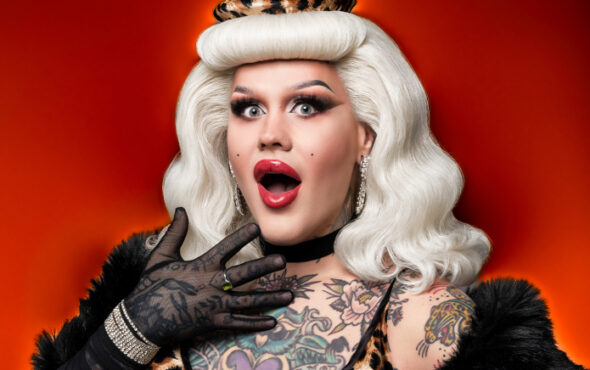
Americans are deeply divided over transgender rights, data released on Tuesday showed, with experts accusing politicians of exploiting clear differences along party lines to foment a culture war over the issue in recent years.
Seven Republican US states have barred trans competitors from girls’ school sports since Democrat President Joe Biden expressed support for trans rights on the campaign trail – taking a stand against the position of his predecessor.
Donald Trump banned new trans personnel from joining the US military in 2017.
In a possible sign of greater awareness about transgender people, the number of respondents who said they personally knew someone trans rose to 42% from 37% in the previous 2017 poll by the Pew Research Center, a Washington DC-based think-tank.
But despite the intense public debate in recent years, more than half of those surveyed said gender is determined solely by sex at birth, as opposed to transition – about the same proportion as four years ago.
“The lack of significant change in attitudes towards transgender people is not surprising given the recent federal and current state policy environments,” said Kerith Conron, research head at LGBTQ+ think-tank the Williams Institute.
Pew’s survey showed wide divisions along party lines.
While 81% of Republicans said sex at birth determined whether someone was a man or a woman, just 34% of Democrats shared that view.
“Framing and messaging by political elites has divided people more than they were divided, say, back in 2014 or 2015,” Don Haider-Markel, a political science professor at the University of Kansas, said by phone.
“We’re in a period of backlash,” he said, warning of an apparent increase in transphobia and anti-trans violence.
“It feels like there’s this notion of the trans person as a real threat and some people are reacting to that threat with violence and that seems to be increasing.”
At least 31 trans and “gender non-conforming” people, most of them Black trans women, have been killed so far this year, according to Human Rights Campaign (HRC), an advocacy group. In 2020, it reported 44 trans killings.
GENERATIONAL DIVIDE
At the same time, more Americans than ever are identifying as trans and non-binary – neither male or female.
In 2016, 0.6% of adults and 0.7% of 13 to 17-year-olds said they were trans, according to the Williams Institute, compared with 0.3% of over-18s in 2011.
A Gallup poll published earlier this year found 1.8% of “Generation Z”, born after 1997, identified as trans, compared with 0.3% of people born before 1946.
Tuesday’s Pew data showed similar trends.
Nearly half of under-30s knew someone non-binary who uses “gender neutral” pronouns such as “they” and “them”, up from a third in 2017 and compared with 11% of over-65s.
An increasing number of celebrities have come out as non-binary, including singers Demi Lovato and Sam Smith.
Younger people were also more likely to know a trans person and to be accepting of their identity than older people.
Sarah Cowan, a professor of sociology at New York University, said she was “not surprised” by the generational differences.
“In the first wave (of people getting to know trans people), you can imagine someone coming out to a co-worker only after working with them for six months … Whereas now, your co-worker comes out to you on the first day because during meetings they share pronouns.”
Reporting by Rachel Savage, Matthew Lavietes and Sonia Elks; Editing by Helen Popper
GAY TIMES and Openly/Thomson Reuters Foundation are working together to deliver leading LGBTQ+ news to a global audience.


